'Extraordinary dichotomy' in police response to Black Lives Matter protests, Capitol chaos: DC attorney general
BLM and pro-Trump protests tell two different stories, officials say.
During Black Lives Matter demonstrations against police brutality in Washington, D.C., last year, law enforcement agencies were documented forcibly pushing back peaceful groups of protesters.
Most notably, on June 1, law enforcement cleared Lafayette Park for an alleged presidential photo-op by deploying pepper balls and smoke canisters. Police also used horses, shields and batons to beat back the demonstrators.
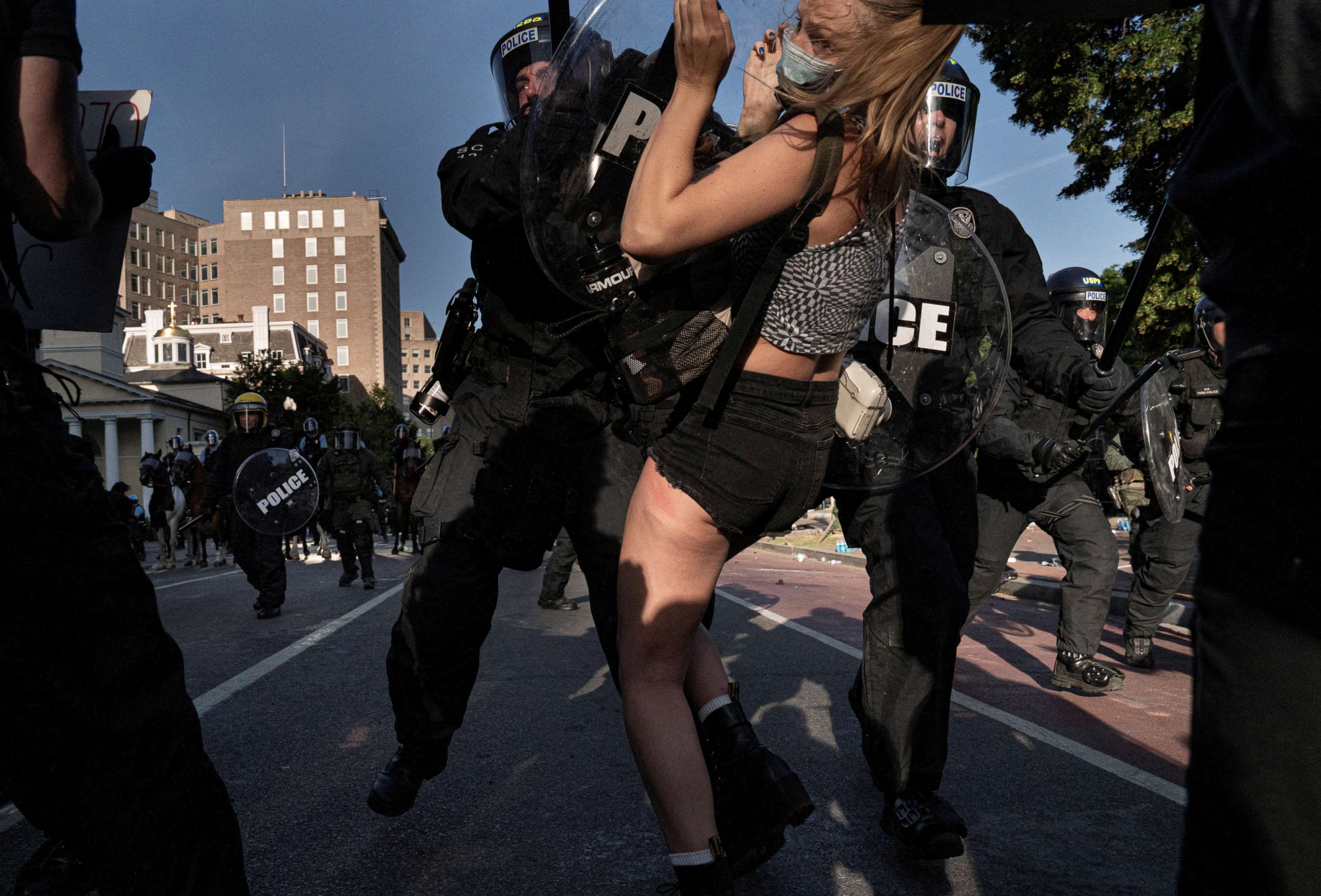
However, primarily white, pro-Trump supporters protesting the results of the presidential election breached the U.S. Capitol Wednesday in a violent siege that D.C. Mayor Muriel Bowser called "textbook terrorism." The mob deployed chemical irritants and used weapons such as metal pipes, injuring over 50 officers, authorities said. A Capitol Police officer at the siege died Thursday, several law enforcement sources confirmed to ABC News. Authorities are investigating his death.
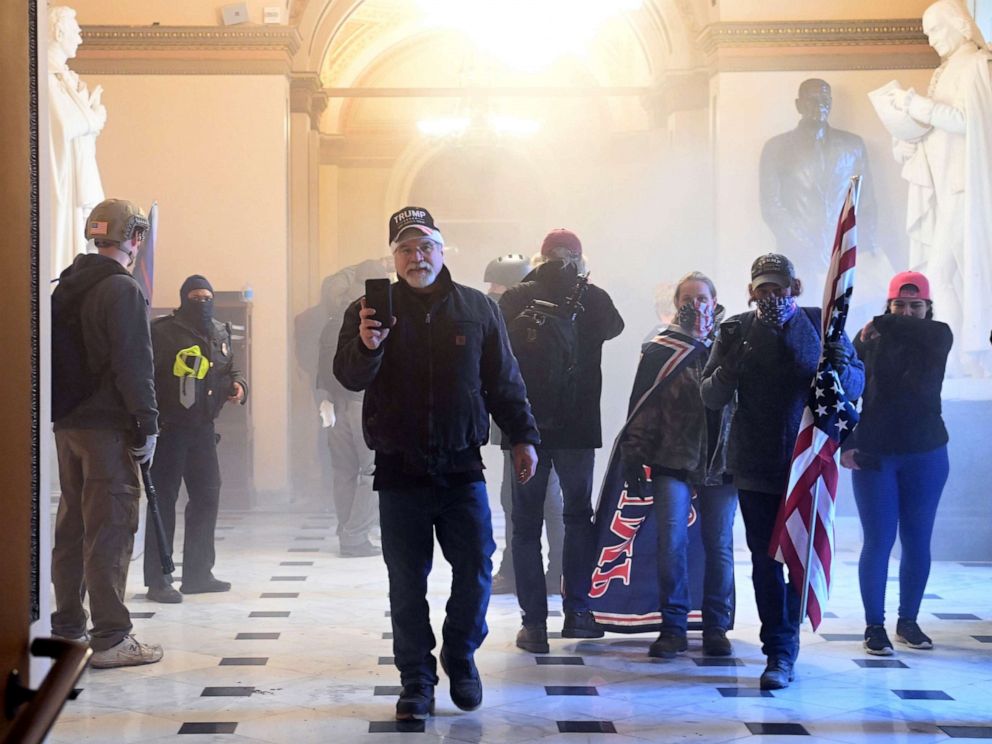
The mob made its way up the Capitol steps, breaking through barricades and past officers in riot gear and other security measures. At one point, people could be seen in one video easily bypassing a barrier as U.S. Capitol Police stood by. In other videos, officers were seen vigorously fighting back against large groups of rioters.
Once inside the Capitol building, the pro-Trump mob moved freely and shouted chants while holding "Trump 2020" signs and a Confederate flag. Police used tear gas, and a Capitol Police officer fatally shot a protester, authorities said. From video captured at the scene, the woman appeared to be shot as she attempted to jump through the broken glass side pane of a barricaded door outside of the House Chamber, where lawmakers were huddled, and toward an armed officer.
For D.C. Attorney General Karl Racine, there was an "extraordinary dichotomy" in the federal response between Black Lives Matter protests and an attempted "coup d'etat on a lawful presidential election."
"You saw effectively an invitation to come into the Capitol and do what you want, because you happen to be a supporter of Trump," Racine told ABC News. "There's no doubt in my mind that if the protesters were brown, Black, immigrants, you would have seen the president spew out all of his hate and it would have been aggressive, and there would have been a different story told."
U.S. Capitol Police Chief of Police Steven Sund said Wednesday's attack on the Capitol "was unlike any I have ever experienced in my 30 years in law enforcement," and called the actions of Capitol Police officers "heroic given the situation they faced."
"The [U.S. Capitol Police] had a robust plan established to address anticipated First Amendment activities. But make no mistake -- these mass riots were not First Amendment activities; they were criminal riotous behavior," he said in a statement Thursday. Shortly thereafter he turned in his resignation.
Wendy Lotongo, lead organizer of the D.C. activist group The Night Shift 15, found Wednesday's scene "unbelievable" and unlike anything he's ever seen -- for different reasons..
"I have friends that are still locked up over the summer, because of the mayor and the city trying to make an example for what happens when you try to speak on your rights," Lotongo told ABC News. "But they also made a very clear example for white people that would like to speak what they feel like their rights are."
Lotongo said he and other members of The Night Shift 15 were among dozens of protesters who were pepper-sprayed by police during a June demonstration on D.C.'s Swann Street. For Lotongo, that day showed how he and others fighting for equal rights are treated differently due to race, he said.
"Let's call a spade a spade," said Lotongo, who is Black. "The mayor, the city, and the country does not see white people as the same way or as the same threat as they see Black people, and that's my honest opinion."
"We would have not seen what we saw yesterday if it were Black people," Black Lives Matter co-founder Patrisse Cullors told "Good Morning America" Thursday. "I say it would have been a massacre if it was Black people trying to charge the Capitol."
Former first lady Michelle Obama said it was "painful" to see the "gulf between the responses to [Wednesday]'s riot and this summer's peaceful protests," in a statement Thursday and also questioned what the police response would have looked like had Wednesday's protesters been Black.
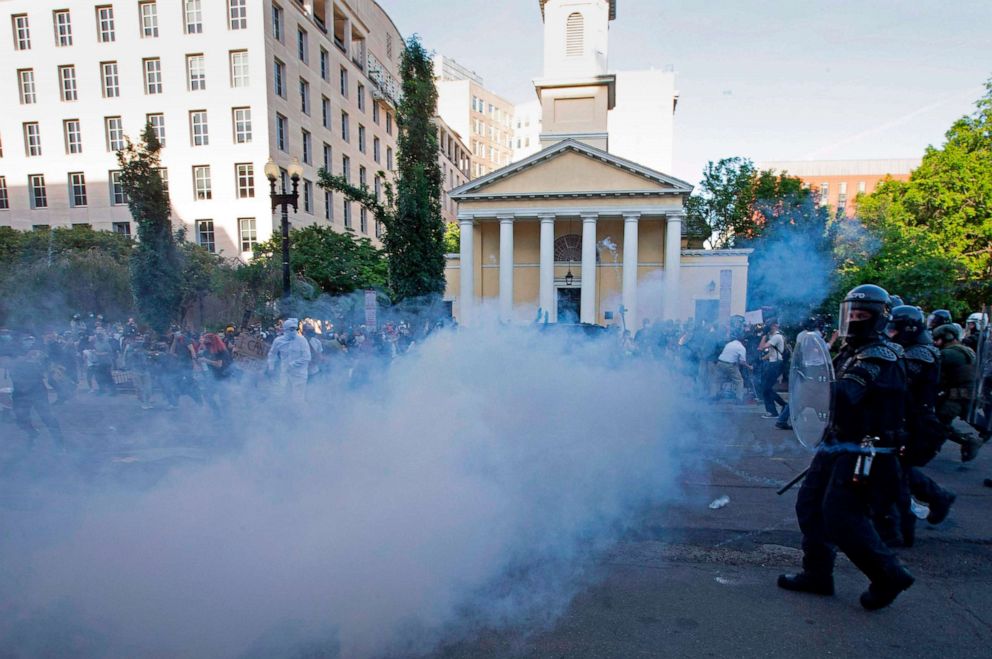
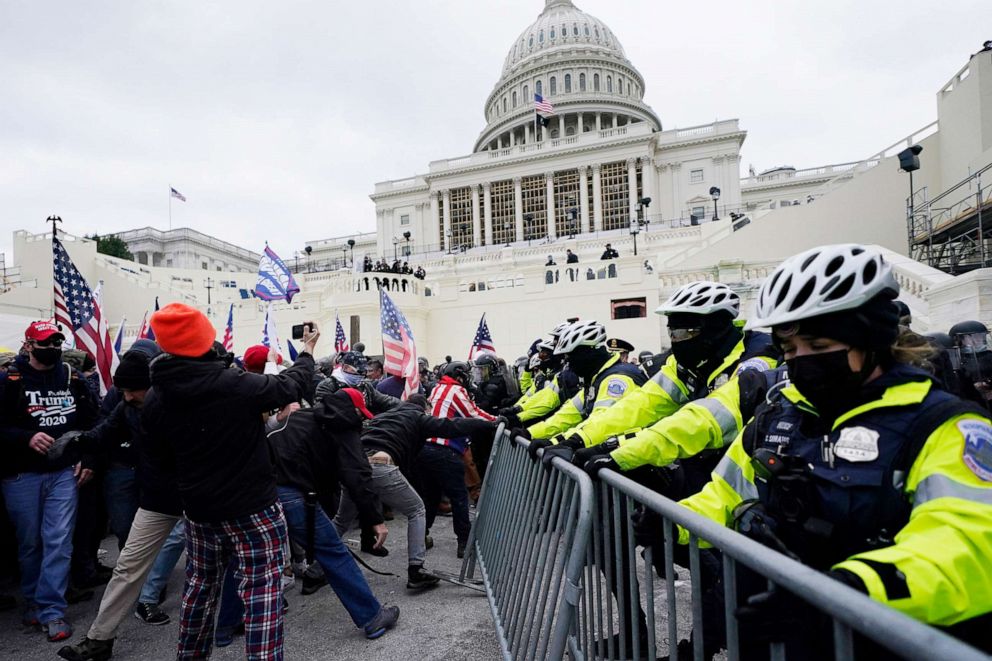
"This summer's Black Lives Matter protests were an overwhelmingly peaceful movement," she said. "And yet, in city after city, day after day, we saw peaceful protestors met with brute force. We saw cracked skulls and mass arrests, law enforcement pepper-spraying its way through a peaceful demonstration for a presidential photo op."
"I cannot think about moving on or turning the page until we reckon with the reality of what we saw yesterday," she added. "True progress will be possible only once we acknowledge that this disconnect exists and take steps to repair it."
President-elect Joe Biden said this disparity was "unacceptable."
"No one can tell me that if it had been a group of Black Lives Matter protesting yesterday, there wouldn't have been -- they would have been treated very, very differently than the mob of thugs that stormed the Capitol," Biden said during an address Thursday. "We all know that's true, and it is unacceptable, totally unacceptable."
The Metropolitan Police Department said it had arrested 80 people since the unrest began as of Thursday morning, including five people with illegal guns, two others for illegally possessing other illegal weapons, 36 for curfew violations and 25 for "curfew violations and unlawful presence" on Capitol Grounds.
MPD Chief Robert Contee has pushed back on what some say was a hesitancy by officers to arrest people.
"The men and women of the Metropolitan Police Department went into a situation that was already out of control," Contee said during a press briefing Thursday. "So once control was established and that perimeter was established, then and only then are we able to make arrests."
More arrests are expected, authorities said.
Capitol Police officials say the department is conducting a review of this incident, security planning and policies and procedures.
D.C. Police Union President Gregory Pemberton charged that the Capitol Police were "ill-prepared" for Wednesday's protests.
"When we arrived, it was obvious that our fellow officers of U.S. Capitol Police were trying valiantly to stop the onslaught of rioters," Pemberton said in a statement Thursday. "While [it is] unclear at this preliminary stage exactly how the building was breached so quickly, it appears likely that U.S. Capitol Police leadership was ill-prepared for this attack, both in manpower, and in resources."
The police response, and Capitol Police's failure to request sufficient reinforcements from the D.C. Police and the National Guard, were widely criticized and are under investigation by the House Appropriations Committee. In addition to Sund, House Sergeant-at-Arms Paul Irving and Senate Sergeant-at-Arms Michael Stenger announced their resignations Thursday.
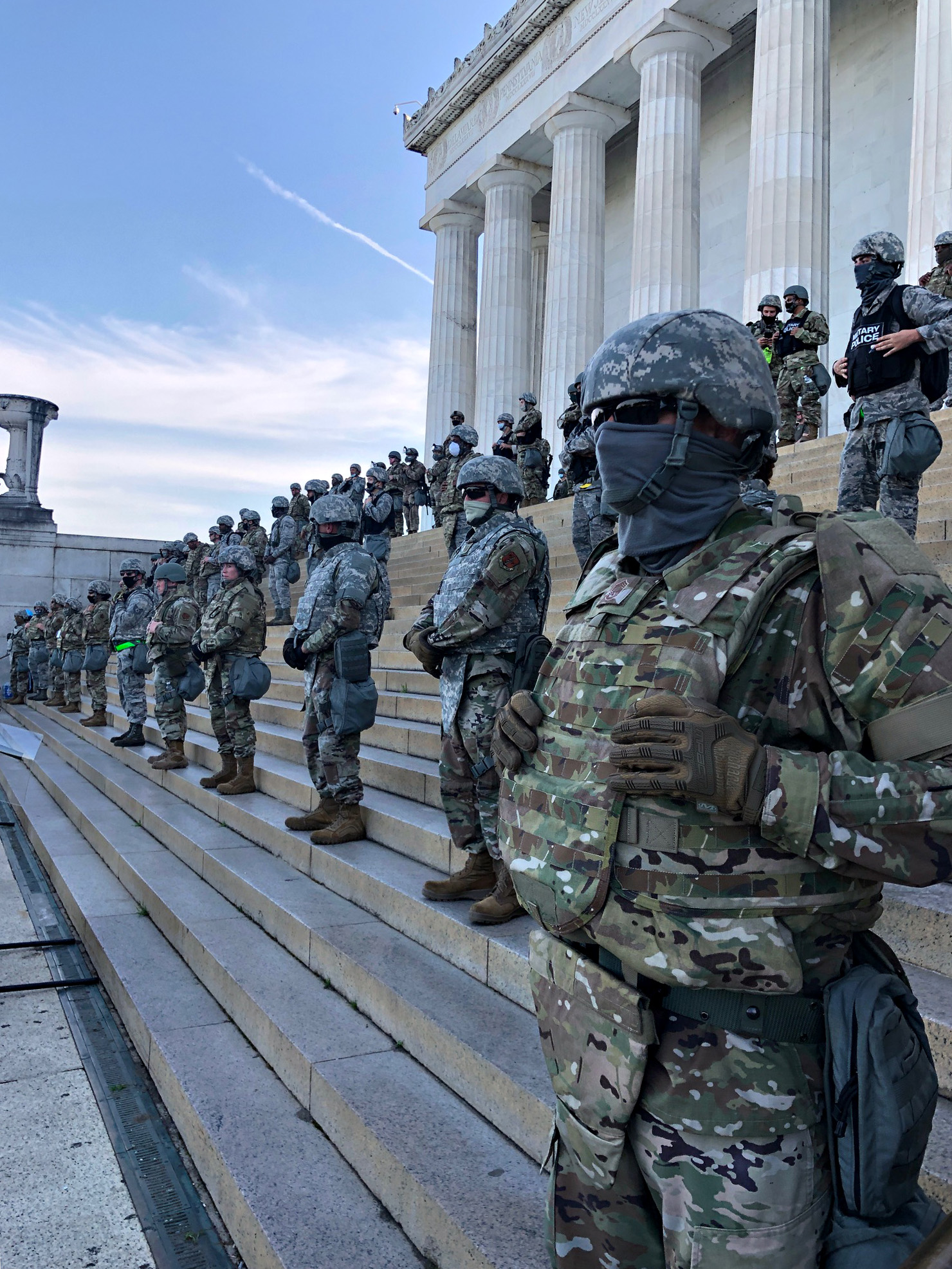
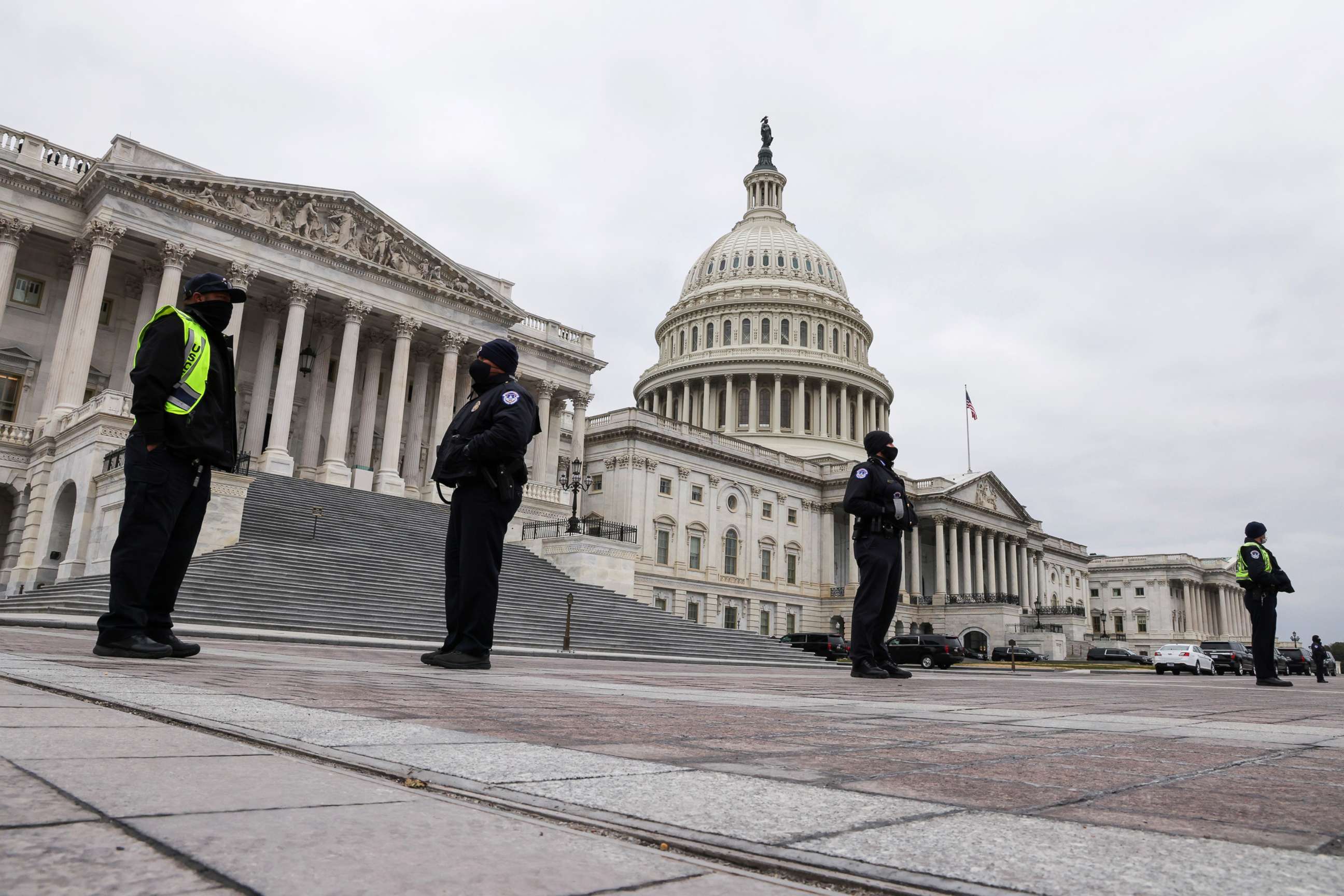
NAACP President Derrick Johnson said the preparation for the protest was "telling."
"I look to see the preparation that was done [Wednesday], when it was known and stated on social media what people are coming to the Capitol to do, and they were ill-equipped -- that is telling," Johnson told ABC News. "It tells me that a peaceful march for the quality of life for African Americans is more threatening than the stated goal to come disrupt an orderly proceeding of Congress."
ABC News' Luke Barr, Jake Date, Alex Mallin, Quinn Owen and Benjamin Siegel contributed to this report.




